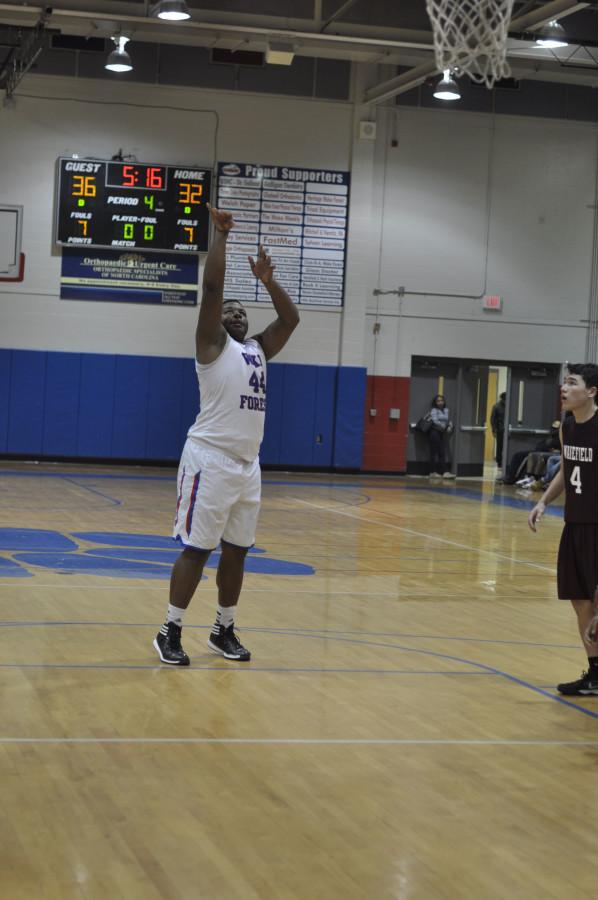The era of the Specialist
June 1, 2015
In many student athletes’ lives, there comes a decision which will define their athletic careers. The choice is to specialize in a single sport or immerse themselves in multiple. Specialization in high school athletes has increased in recent years, creating pressure from parents and coaches alike to weigh on athletes’ minds. According to orthopedic specialist Dr. Mark Galland, many of his patients say, “Our travel team coach will not allow us to play any other sport. Otherwise, we will not be allowed on the team.”
While the push to specialize may originate from coaches, it can also be found in the athletes and their parents themselves.
“Many parents and athletes feel that specializing in only one sport will make their son or daughter more adept at the skills required of that particular sport and provide them an advantage over their peer group,” Galland said.
Although with a higher chance of acquiring sports-related injuries such as shoulder tendinitis, Little Leaguer’s elbow, stress fractures of the foot and ankle and multitudes of other conditions, it is important to note that specialization is not always a path to success.
“The effectiveness of this technique is still a subject of some debate and has certainly not been proven to guarantee the desired outcome,” Galland said.
Junior Kristoni Barnes, a three-sport athlete, abstained from specializing but felt the stakes were raised this year.
“It was a critical time period for colleges, scholarships and recruiting. I felt pressured to make a decision and narrow it down and instead of being good at all three, being great at one,” Barnes said.
With highly recruited athletes running the gamut in their decisions to commit to year-round training or participate in a variety of sports at the high school level, there is no exact rule in formulating athletic achievement.
“Some coaches really want, if you’re a good athlete, your athleticism to carry on to another sport, but it’s really an individual decision more so than a coach’s,” Athletic Trainer Rick Baker said.
Junior Cole Abshire made the individual decision to specialize in baseball at age 12.
“It has changed my life because it’s kind of taken away from my social life because I dedicate myself to becoming better at baseball and working all year and practicing all year,” Abshire said, adding that it was, “all worth it.”
For some athletes, the decision to specialize at a young age could be detrimental.
“I think if you specialize at a young age, you could miss out on your true calling,” Baker said.
A different approach was taken by junior Dexter Lawrence, whose feats on the football field have gained him over 20 collegiate offers and a status as one of the top football recruits in the nation.
Lawrence also plays basketball and throws for track.
Playing multiple sports has greatly impacted his life.
“It taught me responsibility and never giving up on something. It just gave me good character,” Lawrence said.
Lawrence’s approach to athletics is one that is not etched with the type of trauma disorders and burnout rates that specialized athletes face frequently, according to Galland. Instead, playing multiple sports can provide many advantages.
“The benefits are relative rest similar to crop rotation in farming,” Galland said. “The same muscles are not used in the same way when one plays basketball for three to four months, followed by baseball for three to four months, followed by football or track for three to four months. It allows relative rest, for not only the muscles involved but also the type of activity in which they are involved.”
Wake County may have gotten wind of the benefits of rest as they created a new rule, which prohibits football teams from beginning their spring workouts until May.
What used to be a preseason ritual beginning in March being delayed may affect players’ recruiting options. This preseason training is where Lawrence was able to pick up his first offers.
“That’s not giving other people opportunities for college scouts to come and watch them. You have to initiate change,” Lawrence said.
However, with the college scouts that arrive at preseason workouts, there are many that prefer the skill of a more versatile athlete.
“Although this is a subject of much debate, and the question will be argued passionately on both sides of the argument, it is quite clear after speaking to college coaches that college coaches prefer to recruit a multi-sport athlete rather than one that has only played one sport,” Galland said.
The competition of youth sports and the attainment of scholarships is not the only thing at play. Some high school athletes play purely for the love of the game(s) and all the relationships being on a team can provide.
Barnes’ multiple athletic pursuits have led her to, “make bonds, connections and friendships.”
One drawback of playing more than one sport that goes beyond the pros of health benefits and how colleges perceive you is a much more tangible issue.
“You play a sport every season, so regardless of your academic schedule, your workload just doesn’t stop,” Barnes said.
Lawrence echoed this sentiment.
“Sometimes you miss your homework one night or two,” Lawrence said.
Above all the sacrifices athletes make and all the experiences they gain, Baker believes one thing is of utmost importance.
“I think this is one of the important times in their lives, and you truly need to have fun at what you do,” Baker said. “No matter what sport you choose, how many sports you choose, you got to have fun.”


